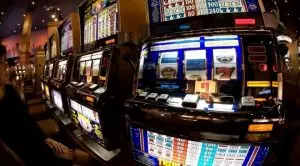 Problem gamblers in Tairāwhiti still do not have an in-person support system that is funded by the Government because the district health board is facing some difficulties to attract suitable staff members to do so.
Problem gamblers in Tairāwhiti still do not have an in-person support system that is funded by the Government because the district health board is facing some difficulties to attract suitable staff members to do so.
On August 1st, 2019, Hauora Tairāwhiti was granted a two-year contract to deliver services aimed at helping gambling addicts in the district by the Ministry of Health. The move came after almost a year in which the district did not have a local problem gambling service, following Te Ara Tika Trust’s decision to voluntarily cease its “unsustainable” contract with the local Ministry of Health on September 30th, 2018.
Despite the new contract is sealed, the team leader of evidence and information at Hauora Tairāwhiti, Iain Diamond, explained that the District Health Board (DHB) is still expected to appoint staff to execute the service. At the time when the new deal was announced, the Ministry of Health revealed that the resurrected service was scheduled to officially start on November 1st so that staff recruitment and training is executed properly.
As explained by Mr Diamond, the DHB had been looking for a counsellor and a health promotion adviser for the problem gamblers help service over the past couple of months but no suitable candidates had been found yet.
Professional Problem Gambling Support Service Necessary to Address Rising Gambling Addiction Rates
 A crucial needs for suitable problem gambling services in the region has been found by the District Health Board, so it was essential that the right people were recruited for the vacant positions.
A crucial needs for suitable problem gambling services in the region has been found by the District Health Board, so it was essential that the right people were recruited for the vacant positions.
The ministry’s deputy Director-General of Mental Health and Addiction, Robyn Shearer, explained that the delay in the service’s implementation was disappointing. He further noted that the competent authorities could find difficulties with the recruitment of trained clinical staff. As Mr Shearer reminded, the in-person support for problem gamblers has been an important part of the local regulators’ strategy aimed at reducing gambling-related harm. This is exactly why making sure there is such a service had been crucial for Hauora Tairāwhiti.
Meanwhile, the DBH has been redirecting gambling addicts seeking help to the Gambling Helpline or to the website of Choice Not Chance.
The manager of the problem gambling service offered by Te Ara Tika, Lizz Crawford, explained that redirecting people who were in need of professional help to deal with their compulsive gambling behaviour, as it was suggested by the Ministry in May 2019, was not appropriate. Special support for gambling addicts have been provided on a voluntary basis has been provided by Ka Pai Kaini community development trust’s chairwoman and another ex-employee of Te Ara Tika, but that ha been far from enough.
Protecting vulnerable people from gambling-related harm in the district is one of the paramount priorities of competent authorities. The gambling participation and problem gambling rates in the district have risen immensely in the last few years, with the amount generated by pokies there was worth NZ$11.4 million.
- Author


